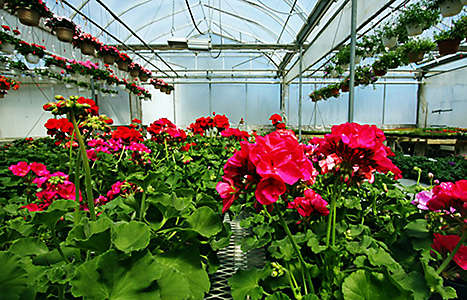If you are a specialty crop grower on the West Coast, you may find yourself thinking: where can I get ladybugs? With the increase in aphids in many fruit and vegetable crops in the Pacific Northwest and California, many growers search for effective biological pest control for aphids. Ladybugs have been a popular sustainable solution used to control aphids for years. Unfortunately, our sales team has reported a shortage of ladybugs along the West Coast, which creates a struggle for growers who need aphid pest control.
But why is there a shortage of ladybugs, and what can growers use instead?
Why is there a shortage of ladybugs?
Recently there has been more interest among fruit and vegetable crop growers to utilize pesticide-free solutions, so naturally, there is more interest in trying beneficial insects1.
This shortage of beneficial insects also tends to be somewhat of a yearly trend. For example, last year, there was a similar decline in the supply of ladybugs due to their migratory patterns and cooler temperatures2. Ladybugs prefer to gather where temperatures are warm, and where they gather determines the amount that can be caught for use. Moreover, many crops in California and the Pacific Northwest that are being grown need effective pest control, so growers demand more ladybugs.
So, the demand for beneficial insects is increasing, while the supply for ladybugs has decreased briefly due to environmental impacts.
What can I use instead of ladybugs to control aphids?
With the high demand and low supply of ladybugs, many growers think, what else can I use for sustainable pest control? There are a variety of other biologicals and biopesticides that are effective and sustainable. For example, our rosemary oil-based biopesticide, TetraCURBTM, has been shown to reduce woolly apple aphid populations by 79% after two applications3. TetraCURB is an effective biopesticide for woolly apple aphids, two-spotted spider mites, thrips, whiteflies, mealybugs, and lygus.
Kemin Crop Technologies harnessed the power of mother nature to design TetraCURB Concentrate and TetraCURB Organic, botanical oil-based, contact miticide-insecticides for commercial growers and farmers who want to get rid of soft-bodied insects and mite pests naturally and sustainably.
The benefits of biopesticides
Some of the main benefits of botanical insecticides in horticulture and the advantages for growers are:
- They have a friendly worker safety profile, allowing minimal PPE and a very short to sometimes zero re-entry interval
- They provide flexibility to growers with their very short, sometimes zero pre-harvest intervals to allow them to apply when they need it the most without worrying about running out of time.
- They generally do not pose problems with residue limits on fresh and processed foods. Check for the MRL exempt claim that indicates that feature.
- They typically have fewer restrictions on the number of applications per growing season on their labels.
- They mix well with many other products allowing for un-planned additions or substitutions in an IPM program, as they can also be used as stand-alone. Always follow labeled tank mix guidelines when adding new biologicals to a chemical mix.
- Some have a very targeted approach and application, having little to no effect on non-target insects, including beneficials. This reduces resistance potential.
- They are sustainable and less harmful to the environment as they do not persist after application.
- They are an excellent resistance management tool. The compounds' complexity in essential oil provides multiple modes of action of the active ingredients, limiting the likelihood of target pests developing pesticide resistance.
- And they DO WORK! These products have been shown to be effective in increasing yield and improving profit. Most of the suppliers run trials in comparison with commonly use chemicals and it can be surprising how nature-based products work as well as and sometimes even better than conventional chemistry without all of the restrictions.




